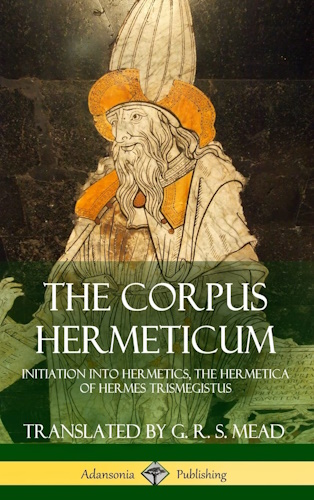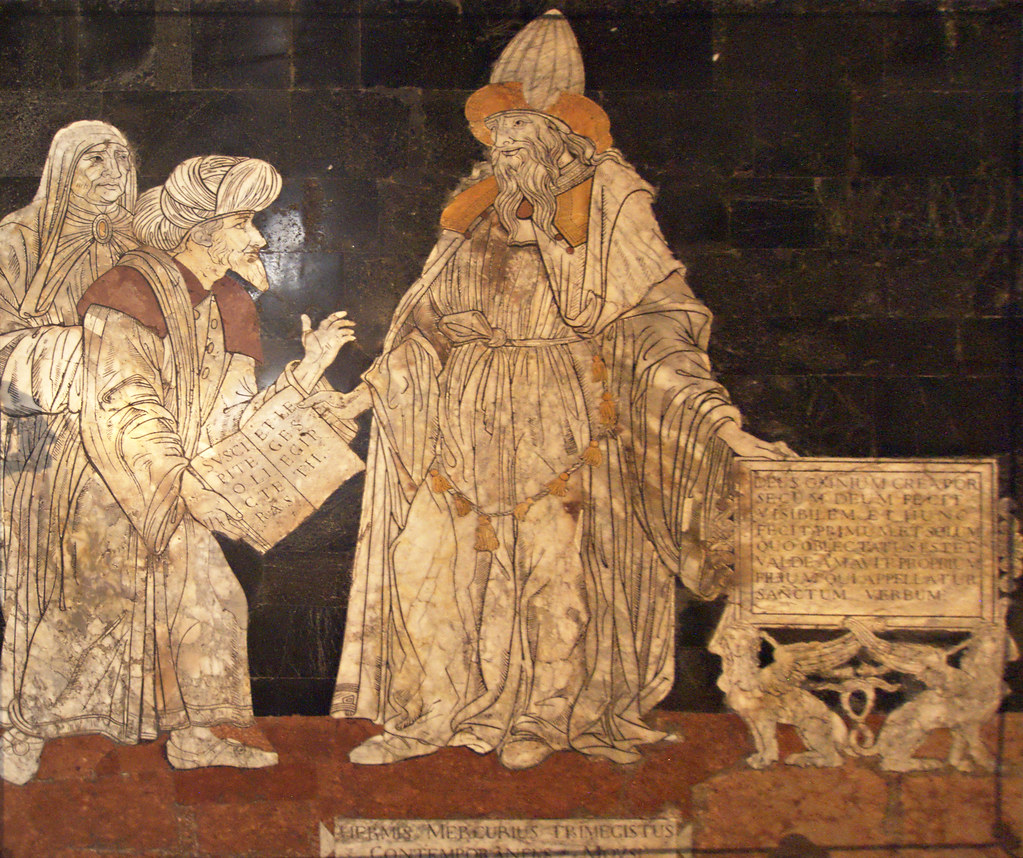
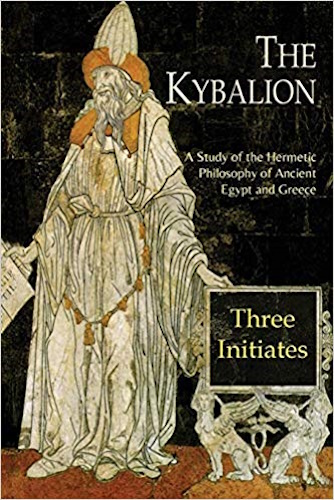

![Thrice-Greatest Hermes; Studies in Hellenistic Theosophy and Gnosis [Three Volumes in One] Thrice-Greatest Hermes; Studies in Hellenistic Theosophy and Gnosis [Three Volumes in One]](http://realityroars.com/images/affiliate-creative/thrice-greatest-hermes--studies-in-hellenistic-theosophy-and-gnosis.jpg)

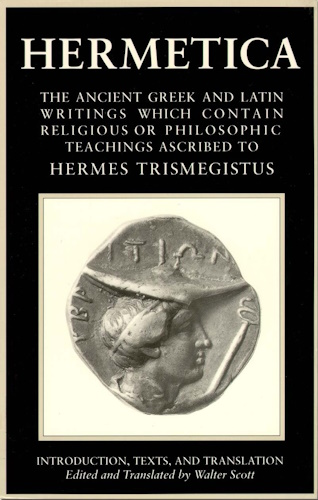



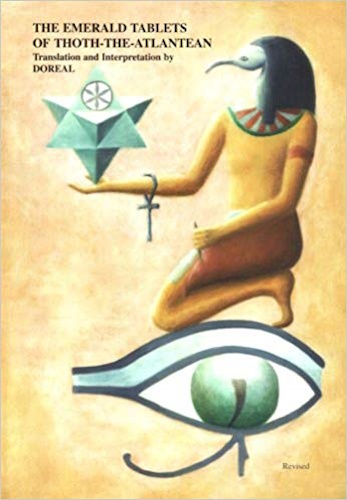

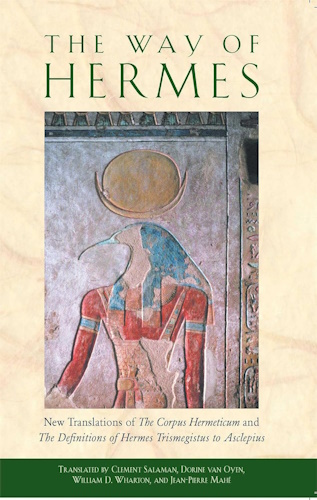

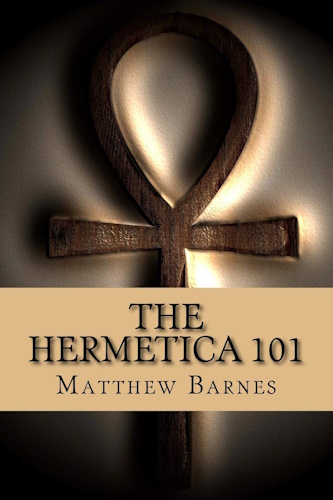

![]()
![]()
II. To Asclepius
This dialogue sets forth the difference between the physical and metaphysical worlds in the context of Greek natural philosophy. Some of the language is fairly technical: the "errant spheres" of sections 6 and 7 are the celestial spheres carrying the planets, while the "inerrant sphere" is that of the fixed stars.
It's useful to keep in mind, also, that "air" and "spirit" are interchangeable concepts in Greek thought, and that the concept of the Good has a range of implications which don't come across in the English word: one is that the good of any being, in Greek thought, was also that being's necessary goal.
The criticism of childlessness in section 17 should probably be read as a response to the Christian ideal of celibacy, which horrified many people in the ancient world. - JMG
1. Hermes: All that is moved, Asclepius, is it not moved in something and by something?
Asclepius: Assuredly.
H: And must not that in which it's moved be greater than the moved?
A: It must.
H: Mover, again, has greater power than moved?
A: It has, of course.
H: The nature, furthermore, of that in which it's moved must be quite other from the nature of the moved?
A: It must completely.
2. H: Is not, again, this cosmos vast, [so vast] that than it there exists no body greater?
A: Assuredly.
H: And massive, too, for it is crammed with multitudes of other mighty frames, nay, rather all the other bodies that there are?
A: It is.
H: And yet the cosmos is a body?
A: It is a body.
H: And one that's moved?
3. A: Assuredly.
H: Of what size, then, must be the space in which it's moved, and of what kind [must be] the nature [of that space]? Must it not be far vaster [than the cosmos], in order that it may be able to find room for its continued course, so that the moved may not be cramped for want of room and lose its motion?
A: Something, Thrice-greatest one, it needs must be, immensely vast.
4. H: And of what nature? Must it not be, Asclepius, of just the contrary? And is not contrary to body bodiless?
A: Agreed.
H: Space, then, is bodiless. But bodiless must either be some godlike thing or God [Himself]. And by "some godlike thing" I mean no more the generable [i.e., that which is generated] but the ingenerable.
5. If, then, space be some godlike thing, it is substantial; but if 'tis God [Himself], it transcends substance. But it is to be thought of otherwise [than God], and in this way.
God is first "thinkable" <or "intelligible"> for us, not for Himself, for that the thing that's thought doth fall beneath the thinker's sense. God then cannot be "thinkable" unto Himself, in that He's thought of by Himself as being nothing else but what He thinks. But he is "something else" for us, and so He's thought of by us.
6. If space is, therefore, to be thought, [it should] not, [then, be thought as] God, but space. If God is also to be thought, [He should] not [be conceived] as space, but as energy that can contain [all space].
Further, all that is moved is moved not in the moved but in the stable. And that which moves [another] is of course stationary, for 'tis impossible that it should move with it.
A: How is it, then, that things down here, Thrice-greatest one, are moved with those that are [already] moved? For thou hast said the errant spheres were moved by the inerrant one.
H: This is not, O Asclepius, a moving with, but one against; they are not moved with one another, but one against the other. It is this contrariety which turneth the resistance of their motion into rest. For that resistance is the rest of motion.
7. Hence, too, the errant spheres, being moved contrarily to the inerrant one, are moved by one another by mutual contrariety, [and also] by the spable one through contrariety itself. And this can otherwise not be.
The Bears up there <i.e., Ursa Major and Minor>, which neither set nor rise, think'st thou they rest or move?
A: They move, Thrice-greatest one.
H: And what their motion, my Asclepius?
A: Motion that turns for ever round the same.
H: But revolution - motion around same - is fixed by rest. For "round-the-same" doth stop "beyond-same". "Beyond-same" then, being stopped, if it be steadied in "round-same" - the contrary stands firm, being rendered ever stable by its contrariety.
8. Of this I'll give thee here on earth an instance, which the eye can see. Regard the animals down here - a man, for instance, swimming! The water moves, yet the resistance of his hands and feet give him stability, so that he is not borne along with it, nor sunk thereby.
A: Thou hast, Thrice-greatest one, adduced a most clear instance.
H: All motion, then, is caused in station and by station.
The motion, therefore, of the cosmos (and of every other hylic <i.e., material> animal) will not be caused by things exterior to the cosmos, but by things interior [outward] to the exterior - such [things] as soul, or spirit, or some such other thing incorporeal.
'Tis not the body that doth move the living thing in it; nay, not even the whole [body of the universe a lesser] body e'en though there be no life in it.
9. A: What meanest thou by this, Thrice-greatest one? Is it not bodies, then, that move the stock and stone and all the other things inanimate?
H: By no means, O Asclepius. The something-in-the-body, the that-which-moves the thing inanimate, this surely's not a body, for that it moves the two of them - both body of the lifter and the lifted? So that a thing that's lifeless will not move a lifeless thing. That which doth move [another thing] is animate, in that it is the mover.
Thou seest, then, how heavy laden is the soul, for it alone doth lift two bodies. That things, moreover, moved are moved in something as well as moved by something is clear.
10. A: Yea, O Thrice-greatest one, things moved must needs be moved in something void.
H: Thou sayest well, O [my] Asclepius! For naught of things that are is void. Alone the "is-not" is void [and] stranger to subsistence. For that which is subsistent can never change to void.
A: Are there, then, O Thrice-greatest one, no such things as an empty cask, for instance, and an empty jar, a cup and vat, and other things like unto them?
H: Alack, Asclepius, for thy far-wandering from the truth! Think'st thou that things most full and most replete are void?
11. A: How meanest thou, Thrice-greatest one?
H: Is not air body?
A: It is.
H: And doth this body not pervade all things, and so, pervading, fill them? And "body"; doth body not consist from blending of the "four" <elements>? Full, then, of air are all thou callest void; and if of air, then of the "four".
Further, of this the converse follows, that all thou callest full are void - of air; for that they have their space filled out with other bodies, and, therefore, are not able to receive the air therein. These, then, which thou dost say are void, they should be hollow named, not void; for they not only are, but they are full of air and spirit.
12. A: Thy argument (logos), Thrice-greatest one, is not to be gainsaid; air is a body. Further, it is this body which doth pervade all things, and so, pervading, fill them. What are we, then, to call that space in which the all doth move?
H: The bodiless, Asclepius.
A: What, then, is Bodiless?
H: 'Tis Mind and Reason (logos), whole out of whole, all self-embracing, free from all body, from all error free, unsensible to body and untouchable, self stayed in self, containing all, preserving those that are, whose rays, to use a likeness, are Good, Truth, Light beyond light, the Archetype of soul.
A: What, then, is God?
13. H: Not any one of these is He; for He it is that causeth them to be, both all and each and every thing of all that are. Nor hath He left a thing beside that is-not; but they are all from things-that-are and not from things-that-are-not. For that the things-that-are-not have naturally no power of being anything, but naturally have the power of the inability-to-be. And, conversely, the things-that-are have not the nature of some time not-being.
14. A: What say'st thou ever, then, God is?
H: God, therefore, is not Mind, but Cause that the Mind is; God is not Spirit, but Cause that Spirit is; God is not Light, but Cause that the Light is. Hence one should honor God with these two names [the Good and Father] - names which pertain to Him alone and no one else.
For no one of the other so-called gods, no one of men, or daimones, can be in any measure Good, but God alone; and He is Good alone and nothing else. The rest of things are separable all from the Good's nature; for [all the rest] are soul and body, which have no place that can contain the Good.
15. For that as mighty is the Greatness of the Good as is the Being of all things that are - both bodies and things bodiless, things sensible and intelligible things. Call thou not, therefore, aught else Good, for thou would'st imious be; nor anything at all at any time call God but Good alone, for so thou would'st again be impious.
16. Though, then, the Good is spoken of by all, it is not understood by all, what thing it is. Not only, then, is God not understood by all, but both unto the gods and some of the men they out of ignorance do give the name of Good, though they can never either be or become Good. For they are very different from God, while Good can never be distinguished from Him, for that God is the same as Good.
The rest of the immortal ones are nonetheless honored with the name of God, and spoken of as gods; but God is Good not out of courtesy but out of nature. For that God's nature and the Good is one; one os the kind of both, from which all other kinds [proceed].
The Good is he who gives all things and naught receives. God, then, doth give all things and receive naught. God, then, is Good, and Good is God.
17. The other name of God is Father, again because He is the that-which-maketh-all. The part of father is to make.
Wherefore child-making is a very great and a most pious thing in life for them who think aright, and to leave life on earth without a child a very great misfortune and impiety; and he who hath no child is punished by the daimones after death.
And this is the punishment: that that man's soul who hath no child, shall be condemned unto a body with neither man's nor woman's nature, a thing accursed beneath the sun.
Wherefore, Asclepius, let not your sympathies be with the man who hath no child, but rather pity his mishap, knowing what punishment abides for him.
Let all that has been said then, be to thee, Asclepius, an introduction to the gnosis of the nature of all things.


![Thrice-Greatest Hermes; Studies in Hellenistic Theosophy and Gnosis [Three Volumes in One] Thrice-Greatest Hermes; Studies in Hellenistic Theosophy and Gnosis [Three Volumes in One]](http://realityroars.com/images/affiliate-creative/thrice-greatest-hermes--studies-in-hellenistic-theosophy-and-gnosis.jpg)











-
Urantia Book, 44:0.11 - The Celestial Artisans
Never in your long ascendancy will you lose the power to recognize your associates of former existences. Always, as you ascend inward in the scale of life, will you retain the ability to recognize and fraternize with the fellow beings of your previous and lower levels of experience. Each new translation or resurrection will add one more group of spirit beings to your vision range without in the least depriving you of the ability to recognize your friends and fellows of former estates.
-
Princess Bride 1987 Wallace Shawn (Vizzini) and Mandy Patinkin (Inigo Montoya)
Vizzini: HE DIDN'T FALL? INCONCEIVABLE.
Inigo Montoya: You keep using that word. I do not think it means what you think it means. -
Urantia Book, 117:4.14 - The Finite God
And here is mystery: The more closely man approaches God through love, the greater the reality -- actuality -- of that man. The more man withdraws from God, the more nearly he approaches nonreality -- cessation of existence. When man consecrates his will to the doing of the Father's will, when man gives God all that he has, then does God make that man more than he is.
-
Urantia Book, 167:7.4 - The Talk About Angels
"And do you not remember that I said to you once before that, if you had your spiritual eyes anointed, you would then see the heavens opened and behold the angels of God ascending and descending? It is by the ministry of the angels that one world may be kept in touch with other worlds, for have I not repeatedly told you that I have other sheep not of this fold?"
-
Urantia Book, Foreword - 0:12.12 - The Trinities
But we know that there dwells within the human mind a fragment of God, and that there sojourns with the human soul the Spirit of Truth; and we further know that these spirit forces conspire to enable material man to grasp the reality of spiritual values and to comprehend the philosophy of universe meanings. But even more certainly we know that these spirits of the Divine Presence are able to assist man in the spiritual appropriation of all truth contributory to the enhancement of the ever-progressing reality of personal religious experience—God-consciousness.
-
Urantia Book, 1:4.3 - The Mystery Of God
When you are through down here, when your course has been run in temporary form on earth, when your trial trip in the flesh is finished, when the dust that composes the mortal tabernacle "returns to the earth whence it came"; then, it is revealed, the indwelling "Spirit shall return to God who gave it." There sojourns within each moral being of this planet a fragment of God, a part and parcel of divinity. It is not yet yours by right of possession, but it is designedly intended to be one with you if you survive the mortal existence.
-
Urantia Book, 1:4.1 - The Mystery Of God
And the greatest of all the unfathomable mysteries of God is the phenomenon of the divine indwelling of mortal minds. The manner in which the Universal Father sojourns with the creatures of time is the most profound of all universe mysteries; the divine presence in the mind of man is the mystery of mysteries.
-
Urantia Book, 1:4.6 - The Mystery Of God
To every spirit being and to every mortal creature in every sphere and on every world of the universe of universes, the Universal Father reveals all of his gracious and divine self that can be discerned or comprehended by such spirit beings and by such mortal creatures. God is no respecter of persons, either spiritual or material. The divine presence which any child of the universe enjoys at any given moment is limited only by the capacity of such a creature to receive and to discern the spirit actualities of the supermaterial world.
-
Urantia Book, 11:0.1 - The Eternal Isle Of Paradise
Paradise is the eternal center of the universe of universes and the abiding place of the Universal Father, the Eternal Son, the Infinite Spirit, and their divine co-ordinates and associates. This central Isle is the most gigantic organized body of cosmic reality in all the master universe. Paradise is a material sphere as well as a spiritual abode. All of the intelligent creation of the Universal Father is domiciled on material abodes; hence must the absolute controlling center also be material, literal. And again it should be reiterated that spirit things and spiritual beings are real.
-
Urantia Book, 50:6.4 - Planetary Culture
Culture presupposes quality of mind; culture cannot be enhanced unless mind is elevated. Superior intellect will seek a noble culture and find some way to attain such a goal. Inferior minds will spurn the highest culture even when presented to them ready-made.
-
Urantia Book, 54:1.6 - True And False Liberty
True liberty is the associate of genuine self-respect; false liberty is the consort of self-admiration. True liberty is the fruit of self-control; false liberty, the assumption of self-assertion. Self-control leads to altruistic service; self-admiration tends towards the exploitation of others for the selfish aggrandizement of such a mistaken individual as is willing to sacrifice righteous attainment for the sake of possessing unjust power over his fellow beings.
-
Urantia Book, 54:1.9 - True And False Liberty
How dare the self-willed creature encroach upon the rights of his fellows in the name of personal liberty when the Supreme Rulers of the universe stand back in merciful respect for these prerogatives of will and potentials of personality! No being, in the exercise of his supposed personal liberty, has a right to deprive any other being of those privileges of existence conferred by the Creators and duly respected by all their loyal associates, subordinates, and subjects.
-
Urantia Book, 54:1.8 - True And False Liberty
There is no error greater than that species of self-deception which leads intelligent beings to crave the exercise of power over other beings for the purpose of depriving these persons of their natural liberties. The golden rule of human fairness cries out against all such fraud, unfairness, selfishness, and unrighteousness.

